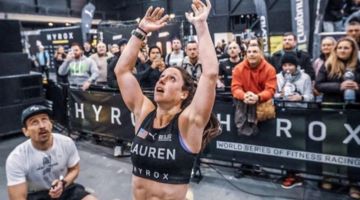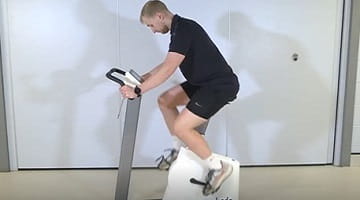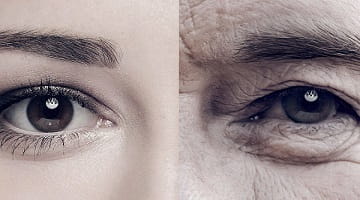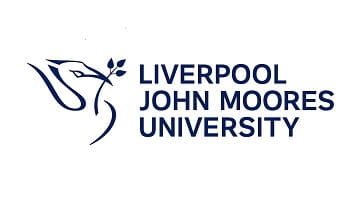About this course
LJMU's Sport Nutrition MSc is taught by academics dedicated to researching athlete-centred nutrition and extending contemporary understanding of exercise metabolism.
- The School of Sport and Exercise Sciences is ranked 6th for Sports Science (QS World University Rankings 2024)
- Experience a unique blend of theoretical science and applied skills taught by world leading academics engaged in nutritional consultancy with world leading sports organisations
- Learn from staff who provide nutrition support to Premiership Football, Super League Rugby League, European Rugby Union, professional golfers, professional jockeys, professional and amateur boxers, British Ski and Snowboard, Professional and Track Cycling, UK Anti Doping and many more
- Study on a course which is accredited by SENr and allows graduates direct entry onto the SENr Graduate register
- Take an ISAK body composition qualification
- Undertake an applied placement mentored by academic staff engaged in applied consultancy
The Sports Nutrition MSc at LJMU opens up a world of scientific innovation, research and the related application of specially designed nutritional support that can help sportspeople to overcome setbacks and achieve their goals.
To be a successful Sport Nutritionist we believe it is essential to study and understand classical and contemporary exercise metabolism research, and then translate this information into athlete-centered nutrition advice.
On this Masters course you will learn to make decisions in complex and unpredictable situations, and you will ultimately contribute to the essential support framework demanded by the sport industry for success. The programme opens up a world of scientific innovation, research and the related application of specially designed nutritional support that can help sportspeople to overcome setbacks and achieve their goals.
On successful completion of the course, you will understand how to deal with complex issues within nutrition, both systematically and creatively, and make sound judgements in the absence of incomplete data. You will also develop essential skills in communicating and implementing your recommendations for clients as well as specialist and non-specialist audiences.
Course modules
Discover the building blocks of your programme
Your programme is made up of a number of core modules, a research project and an applied placement, as detailed below.
Further guidance on modules
Modules are designated core or optional in accordance with professional body requirements, as applicable, and LJMU’s Academic Framework Regulations. Whilst you are required to study core modules, optional modules provide you with an element of choice. Their availability may vary and will be subject to meeting minimum student numbers.
Where changes to modules are necessary these will be communicated as appropriate.
Core modules
Professional accreditation
MSc Sport Nutrition is accredited by SENr and allows graduates direct entry onto the SENr Graduate register.
With membership of ASET, the UK’s leading authority on work based and placement learning, LJMU’s School of Sport and Exercise Sciences is committed to providing Work-based and Placement Learning (WBPL) experiences to our students that are quality assured and supported in accordance with best practice guidelines.
Your Learning Experience
An insight into teaching on your course
Study hours
Students will have approximately two hours per module per week of taught material and/or seminar work. This may be supplemented by reflective tutorials during the semester (up to four hours per week). Private study will cover both time spent studying (e.g. in the library), collecting data in the laboratory and completing directed tasks and coursework. Taught sessions will provide an orientation to the topic and opportunity for classroom discussion and debate. You will also be expected to read widely using primary sources of reference material.
Teaching methods
Our team of world-leading academics carefully design course delivery and assessment around their leading edge research to ensure that your learning experience is based on the latest information and relevant to effective practice in Sport Nutrition.
The programme strategy is based on a low student : staff ratio that allows a close level of academic and pastoral support within a friendly and informal atmosphere. Teaching takes place in small groups and draws upon the world-class facilities in our award-winning Tom Reilly Building. You will benefit from links with the sporting industry that are fully integrated in the work we do with sporting professionals, teams and related businesses.
Applied learning
Each student undertakes a 12 week applied placement mentored by academic staff engaged in applied consultancy.
How learning is monitored on your programme
To cater for the wide-ranging content of our courses and the varied learning preferences of our students, we offer a range of assessment methods on each programme.
Assessment methods on this course include: extended essays, practical assessments, oral presentations, case studies, applied placement reports and research presentations.
Where you will study
This programme is taught in the City Campus. LJMU has invested £35 million in state-of-the-art laboratory facilities for our current and future sport scientists. All of our labs are furnished with the latest equipment which enables us to work with our students and partners to enhance our understanding of the science behind human performance and behaviour.
Course tutors

Dr Julien Louis
Programme Leader
My role at LJMU is very diverse and I particularly enjoy the range of activities I can get involved in, from teaching and testing in the labs through to working with elite athletes and coaching staff.
My role at LJMU is very diverse and I particularly enjoy the range of activities I can get involved in, from teaching and testing in the labs through to working with elite athletes and coaching staff.
Dr Louis gained his PhD from the University of Nice in 2011. Following successive postdoc positions in Perth, Australia and Paris, France, Dr Louis worked as Sport Scientist and Head of Nutrition at the French Institute of Sport until 2015. Dr Louis also worked as Consultant Nutritionist for several Premiership football clubs in France and England and is the current Performance Nutritionist for the French Football Federation. Dr Louis' research interests span: sports performance and ageing; nutrition and applied physiology of elite sport; and training and recovery strategies to support athletic performance. He has published over 50 papers in these areas to date.
Career paths
Further your career prospects
LJMU has an excellent employability record with 96% (HESA 2018) of our postgraduates in work or further study six months after graduation. Our applied learning techniques and strong industry connections ensure our students are fully prepared for the workplace on graduation and understand how to apply their knowledge in a real world context.
The integrated and critical nature of the programme promotes qualities and skills relevant to employability within the sports nutrition field. The degree is ideal for individuals looking to work as Sports Nutritionists with national governing bodies such as the English Institute of Sport (EIS).
Many graduates from this programme have gone on to work as Sport Nutritionists in professional sports clubs and/or national Institutes of sport including Manchester United FC, Warrington Wolves, The RFU, The EIS and Team Sky. Some have gone on to further studies, e.g. a PhD in Sport Nutrition or Exercise Metabolism. Graduates also work as self-employed Sport Nutritionists for professional and amateur athletes.
Although most graduates pursue accreditation with SENr and seek work in the field of sport nutrition, the degree is also ideally suited for Strength and Conditioning Practitioners who are looking to increase their knowledge and applied skills in nutrition, as well as those interested in using exercise nutrition to improve the health of the general public. The theoretical basis of the course will also be ideal if you wish to pursue further academic studies and move to a PhD in nutrition or exercise biochemistry. The translational skills taught on the course are applicable to working in the community and improving the health and fitness of the general population. The main focus of the programme, however, is on working with elite performers and investigating how nutrition can maximise the health, body composition and performance of athletes.
"Graeme and his team have developed an outstanding Masters degree which has a great balance between academia and applied practice. I have no doubt that students completing this degree will leave the programme with all of the skills required to deliver sports nutrition support to elite athletes and I would therefore give this degree my full support.
Richard Hunwicks Lead S&C Salford Red Devils
Tuition fees and funding
- Fee:
- £10,705
Fees
The fees quoted above cover registration, tuition, supervision, assessment and examinations as well as library membership and student IT support with access to printed, multimedia and digital resources including programme-appropriate software and on campus wifi.
Financial Support
There are many ways to fund postgraduate study for home and international students. From loans to International Scholarships and subject-specific funding, you’ll find all of the information you need on our specialist postgraduate funding pages. The University offers a range of financial support for students. You'll find all the information you need on our specialist financial support pages including details of the Student Support Fund and other activities to support with the cost of living.
Additional Costs
In addition to fees, students should also keep in mind the cost of:
- Accommodation
- Travel costs and field trips unless paid for by LJMU
- Stationery, IT equipment, professional body membership and graduation gown hire
Entry requirements
You will need:
Qualification requirements
How to apply
Securing your place at LJMU
To apply for this programme, you are required to complete an LJMU online application form. You will need to provide details of previous qualifications and a personal statement outlining why you wish to study this programme.
Your university life
From accommodation and academic support to clubs and societies. Find out what LJMU has to offer.
Related Links
Talk to our students
Connect with a current LJMU student for advice and guidance on university life, courses and more.
See what our students are saying
At LJMU we want you to know you’re making the right choice by studying with us. You can see what our students are saying about their experience with us through their reviews on the following websites:
Related Links
News and views
Browse through the latest news and stories from the university
The University reserves the right to withdraw or make alterations to a course and facilities if necessary; this may be because such changes are deemed to be beneficial to students, are minor in nature and unlikely to impact negatively upon students or become necessary due to circumstances beyond the control of the University. Where this does happen, the University operates a policy of consultation, advice and support to all enrolled students affected by the proposed change to their course or module.
































